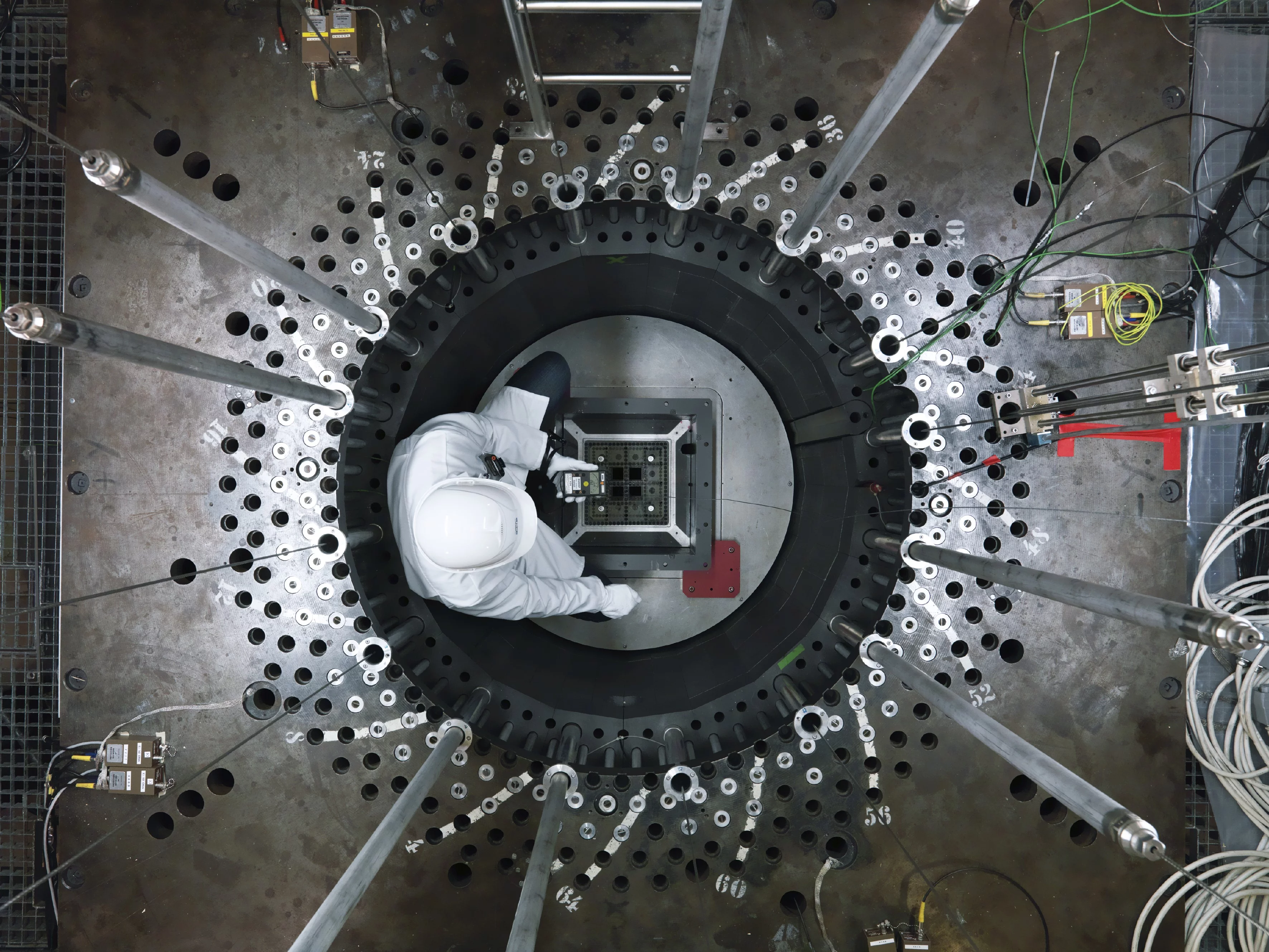Start of the public examination period for decommissioning of the nuclear facility Proteus at the Paul Scherrer Institute PSI
The research facility Proteus is a so-called zero-power reactor. In service, the thermal output of the reactor was limited to a maximum of 1 kW. That means this is an experimental reactor that was run at a power level so low that it did not require cooling. Proteus went into service in 1968 and was used primarily to study reactor physics parameters for different configurations of nuclear fuel. In April 2011, the management board of the PSI decided, for economic reasons, to take Proteus out of service, since it had hardly been used in the previous two years. To make it possible for researchers to investigate present-day questions in reactor technology with Proteus, a facility upgrade costing tens of millions would have been required. A year later, in March 2012, the nuclear fuel was removed from the reactor's core. Subsequently, on behalf of the PSI, the Swiss Federal Department of Finance applied to the Swiss Federal Office of Energy (SFOE) for the decommissioning and for the disassembly of the reactor, so that the facility can be released from legislation regulating nuclear energy. The modularly constructed zero-power reactor Proteus can be dismantled within two years by a small removal team. After disassembly of all reactor structures, the building will be certified free of radiological contamination and retained.
In December 2014, the PSI submitted the final documents required for the project to decommission Proteus to the SFOE. The decommissioning project is being publicly announced in the legally prescribed, official publications (22 February 2016 in the Bulletin des Gemeinderates Würenlingen; 23 February 2016 in the Bundesblatt; 24 February 2016 in the newspaper Die Botschaft; 25 February 2016 in the newspaper Rundschau; 26 February 2016 in the Amtsblatt Kanton Aargau; 22-26 February 2016 in the Mitteilungsblatt Villigen).
From 29 February to 14 April 2016, the application documents will be open to public examination at the Würenlingen municipal office. During this time, parties affected by the project have the possibility to raise objections against it. The Federal Department of the Environment, Transport, Energy and Communications (DETEC) is responsible for regulation of the decommissioning. According to the current schedule, DETEC will issue its decision by the end of 2016.
About PSI
The Paul Scherrer Institute PSI develops, builds and operates large, complex research facilities and makes them available to the national and international research community. The institute's own key research priorities are in the fields of matter and materials, energy and environment and human health. PSI is committed to the training of future generations. Therefore about one quarter of our staff are post-docs, post-graduates or apprentices. Altogether PSI employs 1900 people, thus being the largest research institute in Switzerland. The annual budget amounts to approximately CHF 380 million. PSI is part of the ETH Domain, with the other members being the two Swiss Federal Institutes of Technology, ETH Zurich and EPFL Lausanne, as well as Eawag (Swiss Federal Institute of Aquatic Science and Technology), Empa (Swiss Federal Laboratories for Materials Science and Technology) and WSL (Swiss Federal Institute for Forest, Snow and Landscape Research).
(Last updated in February 2016)
Contact
Dagmar BarokeHead Corporate Communications
Paul Scherrer Institute
Telephone: 056 310 29 16, e-mail: dagmar.baroke@psi.ch

